Cambridge Healthtech Institute ’s 2nd Annual
Bioproduction: Scale, Bioreactors & Disposables
Making It Work
20-21 March 2019
Cambridge Healthtech Institute’s “Bioproduction” conference reviews the finesse required to manufacture biologics including scale-down models, scaling up production, engineering bioreactors, single-use systems, and ensuring quality,
within the context of increasing productivity; while ensuring safety and achieving reduced costs. A holistic review of bioprocessing will be explored, as well as practical details, such as monitoring and analyzing processes, and examining in detail
how bioreactors process cells and how to keep those cells happy. The conference will address robust production processes and next-generation technologies, while improving manufacturing platforms and ensuring product quality.
Final Agenda
Short Courses |
Training Seminars |
Brochure
Wednesday, 20 March
10:00 Registration Open
10:30 Coffee Break in the Exhibit Hall. Last Chance for Poster Viewing.
11:15 Chairperson’s Remarks
 Manuel Carrondo, PhD, Professor of Chemical and Biochemical Engineering, FCT-UNL; Vice President, IBET
Manuel Carrondo, PhD, Professor of Chemical and Biochemical Engineering, FCT-UNL; Vice President, IBET
11:20 Bioprocessing Innovations in the Era of Clinical Acceleration and Process Intensification
 Stefanos Grammatikos, PhD, Vice President, Head, Biotech Sciences, UCB Pharma
Stefanos Grammatikos, PhD, Vice President, Head, Biotech Sciences, UCB Pharma
Current trends in clinical development acceleration and bioprocess intensification impose an unprecedented compression of CMC development timelines and new bioprocessing challenges downstream of the cell culture bioreactor. In this talk I will present
a series of innovations we have introduced, some incremental and some potentially disruptive, in an effort to avoid further complications while rising to the latest challenges of bio CMC development and bioprocessing.
11:50 Opportunities and Challenges in CAR T Manufacturing
Markwin Velders, PhD, Vice President, Operations, Managing Director, Kite Pharma EU B.V.
Update on the status of CAR-T development for use in the treatment of cancer. The success story of this paradigm shift and the challenges and opportunities that lay ahead for this therapy will be presented and discussed.
12:20 Session Break
 12:30 Bridging Luncheon Presentation:
12:30 Bridging Luncheon Presentation:
Next Generation Technologies that Yield Higher Quality CHO Clones and Intensified Gene to GMP Timelines
Alison Young, PhD, Staff Scientist, Mammalian Cell Culture, FUJIFILM Diosynth Biotechnologies
Should biomanufacturing companies rely on well-known, traditional solutions to cell line development with extended timelines, or invest in new technologies with the potential for greater productivity and speed? In this study we demonstrate how to leverage (i) host cell line directed evolution strategies to improve bioprocess relevant phenotypes and increase mAb titres up to 2-fold; and (ii) key technology enablers that allow intensification of cell line development timelines from 25 weeks to 10 weeks.
13:00 Session Break
13:40 Chairperson’s Opening Remarks
Ronan O’Kennedy, PhD, Consulting Bioprocess Specialist, ROK Bioconsulting
13:45 KEYNOTE PRESENTATION:
Big Data and Bioengineering: The Perfect Marriage
 Arlindo Oliveira, PhD, Professor, Computer Science & Engineering, Instituto Superior Técnico
Arlindo Oliveira, PhD, Professor, Computer Science & Engineering, Instituto Superior Técnico
Modern artificial intelligence techniques, heavily based on machine learning approaches, have created the possibility to analyse large volumes of data in many domains in ways that were inaccessible until now. Modern bioengineering depends heavily, if
not totally, on data-based approaches that are able to uncover the knowledge hidden in the large amounts of data generated by genomics, proteomics, metabolomics and other “omics”. This talk will describe some methodologies that can be
used to extract knowledge from biological data and to direct bioengineering research.
14:15 Mathematical Modelling Across Reactor Scales
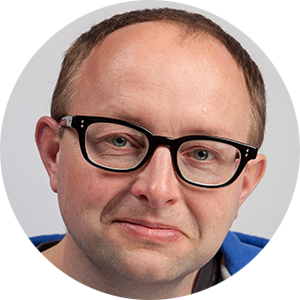 Krist Gernaey, PhD, Professor, Head, Process and Systems Engineering Center (PROSYS), Chemical
and Biochemical Engineering, Technical University of Denmark
Krist Gernaey, PhD, Professor, Head, Process and Systems Engineering Center (PROSYS), Chemical
and Biochemical Engineering, Technical University of Denmark
Modelling plays an increasingly important role in bioprocess development. Computational Fluid Dynamics (CFD) is now generally used as a tool for the description of bioreactor hydrodynamics, also at large scale. CFD will be presented as a modelling framework
forming the basis for development of compartment and scale-down models. Furthermore, challenges related to model validation and potential solutions are highlighted, and future perspectives related to advanced modelling frameworks are presented.
14:45 Individual-Based Models for Bioprocesses
Rebeca González-Cabaleiro, PhD, Lecturer, Infrastructure & Environment, Engineering, University of Glasgow
Microbial communities are complex. Our lack of knowledge makes our capacity to engineer them limited and biosystems are in many cases unpredictable. This reduces the interest of bio-based industrial processes and therefore the full versatility and potential
of these systems remains unexploited. Mathematical models at the micro-scale level are a perfect tool to describe the heterogeneity of microbial communities, explore their capacities and predict their behavior.
 15:15 The Perfect Fit: Intelligent Sensors, Wireless Communication & GMP Compliance
15:15 The Perfect Fit: Intelligent Sensors, Wireless Communication & GMP Compliance
Knut Georgy, PhD, Senior Market Segment Manager, Business Unit Process Analytics, Hamilton Bonaduz AG

15:30 A Software Platform for Quality by Control Realization of Bioprocesses
 Wolfgang Sommeregger, PhD, Research & Development, Bilfinger Industrietechnik Salzburg GmbH
Wolfgang Sommeregger, PhD, Research & Development, Bilfinger Industrietechnik Salzburg GmbH
We present an advanced process monitoring and control software, capable of data-integration, -processing and -management, modeling and control, ultimately enabling PAT integration to bioprocesses. The data for the establishment of the software was generated
by applying a design of experiments setting to recombinant CHO bioprocesses at different scales.
15:45 Refreshment Break in the Exhibit Hall with Poster Viewing
16:25 Online Monitoring in Microfluidics and Micro(bio)reactors with Integrated Optical Chemical Sensor
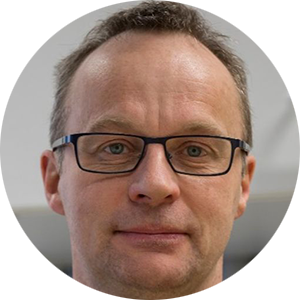 Torsten Mayr, PhD, Associate Professor, Analytical Chemistry, Graz University of Technology (TU
Graz)
Torsten Mayr, PhD, Associate Professor, Analytical Chemistry, Graz University of Technology (TU
Graz)
We present the miniaturization and integration of optical chemical sensors for oxygen, pH and glucose in microfluidic and micro-bioreactors. Miniaturized sensor layers and spots in sizes down to 100 micrometers are read out with miniaturized instruments.
In addition, luminescent nanobeads are demonstrated as an attractive alternative to integrated sensor layers since they can be easily injected into the flow, do not interfere with the sample, and have fast response times.
16:55 High Resolution Native LC-MS for Product CQA Assessment and Process Monitoring
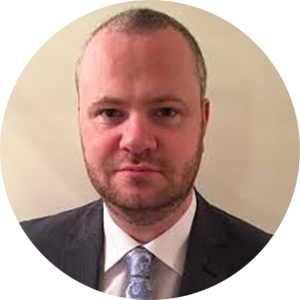 Jonathan Bones, PhD, Principal Investigator, Characterization and Comparability Laboratory,
National Institute for Bioprocessing Research and Training (NIBRT)
Jonathan Bones, PhD, Principal Investigator, Characterization and Comparability Laboratory,
National Institute for Bioprocessing Research and Training (NIBRT)
Multi-attribute monitoring has attracted considerable attention recently as process scientists request more information to assist them to develop and understand their bioprocesses. A strategy for multi-attribute monitoring using intact protein separations
coupled to native high resolution mass spectrometry will be described that facilitates the determination of multiple product quality attributes such as glycosylation, deamidation, lysine truncation, etc. Different examples will be presented along
with strategies for inclusion of the platform in an online format.
17:25 Risk Management in ICH Q12: Supporting Quality, Compliance & Culture Excellence Over Lifecycle of Biologic Products
 José Monteiro Cardoso de Menezes, PhD, Associate Professor, Pharmaceutical Engineering, Institute
for Biotechnology & Bioengineering, Instituto Superior Técnico, University of Lisboa, and CEO, 4Tune Engineering
José Monteiro Cardoso de Menezes, PhD, Associate Professor, Pharmaceutical Engineering, Institute
for Biotechnology & Bioengineering, Instituto Superior Técnico, University of Lisboa, and CEO, 4Tune Engineering
RM is to KM what PAT is to QbD! Although presently the industry may lack better ways to manage knowledge (KM) through sophisticated tools and platforms, risk-management (RM) tools can provide very effective capabilities to capture, retain, and support
knowledge-driven lifecycle activities. There is a recent regulatory expectation (ICH Q12) that companies can retrospectively use key QbD elements (e.g., RM) to address and justify improvements in their current legacy control strategies, supporting
post-approval changes using risk- and knowledge-based approaches.
17:55 End of Day
18:00 Dinner Short Course Registration
18:30 - 21:00 Suggested Dinner Short Course*
SC5: Saving Time in Process Development with Next-Generation Methods: iDoE, Hybrid Modeling and PAT
Instructors:
Moritz von Stosch, PhD, Senior Manager, Drug Substance, Technical R&D, GSK Vaccines
Gerald Striedner, PhD, Associate Professor, Biotechnology, University of Natural Resources and Life Sciences (BOKU)
Mark Dürkop, PhD, Project Leader, Biotechnology, University of Natural Resources and Life Sciences (BOKU)
In this short course, we show how a more accurate design space can be defined that provides increased flexibility for process operation based on the iDoE-hybrid modeling strategy. We also show how advanced monitoring strategies support the tracking of
the deviations and how these methods can readily be developed from the iDoE data. It will be illustrated how the combination of the hybrid model with monitoring can directly be exploited for process control, thus naturally evolving the last step of
the QbD roadmap.
*Separate registration required.
Short Courses |
Training Seminars |
Brochure
Thursday, 21 March
8:00 Registration and Morning Coffee
8:25 Chairperson’s Opening Remarks
Jonathan Bones, PhD, Principal Investigator, Characterization and Comparability Laboratory, National Institute for Bioprocessing Research and Training (NIBRT)
8:30 FEATURED PRESENTATION:
Next-Generation Processes, Technologies and Operations
 Michael Pohlscheidt, PhD, Site Head & Head of Operations, Solothurn Manufacturing
Facility, Biogen
Michael Pohlscheidt, PhD, Site Head & Head of Operations, Solothurn Manufacturing
Facility, Biogen
A critical step in meeting the demand of biologic production worldwide involves implementing disruptive manufacturing technologies, processes and capabilities. This talk will evaluate Biogen’s new manufacturing site in Switzerland, due to go online
in 2019, including the new processes, operational models and technologies being adopted to drive value through innovation and deliver new medicines in areas such as Alzheimer’s.
9:00 Characterisation and Application of a Miniature Bioreactor System for Cell Culture Process Development
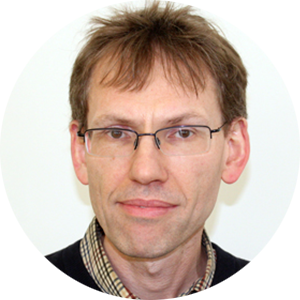 Frank Baganz, PhD, Associate Professor, Biochemical Engineering, University College London (UCL)
Frank Baganz, PhD, Associate Professor, Biochemical Engineering, University College London (UCL)
The need to bring new biopharmaceutical products to market more quickly and to reduce final manufacturing costs is driving early-stage, small-scale bioprocess development. This presentation will cover the engineering characterisation of a single-use 24-well
parallel miniature bioreactor (MBR) in terms of power input, liquid phase mixing and oxygen mass transfer. Examples will be given for the application of this MBR to optimize and scale cell culture processes.
9:30 The Lessons of Augmenting a Sartorius ambr250 System for Perfusion Operation
 Philipp Kaiser, Dipl.Ing, Senior Scientist, Bioprocess Development, Drug Substance Operational Sciences Basel, Novartis Pharma AG
Philipp Kaiser, Dipl.Ing, Senior Scientist, Bioprocess Development, Drug Substance Operational Sciences Basel, Novartis Pharma AG
From many perspectives, it’s appealing to use an ambr250 system for scale-down high-cell density perfusion process development and characterization tasks. We present the journey of how we augmented a 24-way fed-batch ambr250 system to meet our
increasing needs. This talk covers the design and installation challenges of both physical and software components, and continues on how we modified the required labware and procedures to operate the system. We conclude with a success evaluation
and outlook.
10:00 Improving the Yields of Complex Monoclonal Antibodies and Fusion Proteins for Cancer Therapy
 Peter Blas,
PhD, Teacher of Science, The Kibworth School, and Biochemical Engineering, University College London (UCL)
Peter Blas,
PhD, Teacher of Science, The Kibworth School, and Biochemical Engineering, University College London (UCL)
The bioprocessing of a fusion protein is characterised by low yields, and through recovery and purification, an overall 90% loss. However, there is evidence of the protection of degradation products which occurs in the presence of shear plus air/liquid
interfaces. This study seeks to characterise the loss and use of ultra‐scale‐down studies to predict its occurrence; and shows loss may be diminished by the use of protective reagents, such as Pluronic F68.
10:30 Coffee Break in the Exhibit Hall. Last chance for poster viewing.
11:15 Scaling Up and Down of Single-Use Bioreactor Cultivations
 Stefan Junne, PhD, Group Leader & Chair, Bioprocess Engineering, Technische Universität
Berlin
Stefan Junne, PhD, Group Leader & Chair, Bioprocess Engineering, Technische Universität
Berlin
Process scalability has been an issue for over 50 years in the area of stainless steel bioreactors. Methods for the characterization of industrial-scale bioreactors and scale-down systems have been established; however, this subject gained new relevance
by the various designs of single-use bioreactors. Therefore, the current state of scaling up and down single-use bioprocesses are presented and discussed based on examples from typical cell culture to niche applications, which offer new possibilities
for single-use based bioprocessing.
11:45 A DOE Approach to Oxygen Transfer Modelling in Single-Use Bioreactors
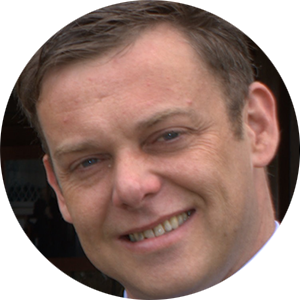 Ronan O’Kennedy, PhD, Consulting Bioprocess Specialist, ROK Bioconsulting
Ronan O’Kennedy, PhD, Consulting Bioprocess Specialist, ROK Bioconsulting
A DOE approach was used to characterize the effects of total gas flow-rate, % inlet O2 conc, agitation, and % fill volume on KLa in three single use bioreactor scales commonly used for process development and scale up. The relative effects of operating
parameters and interactions at each scale were evaluated. We show that the combined model can be used to make accurate predictions of KLa across the 2 – 200 L bioreactor range, thereby simplifying the scale up of the upstream processes.
12:15 De-Intensifying Protein Production with Pichia pastoris -- New, Unpublished Data
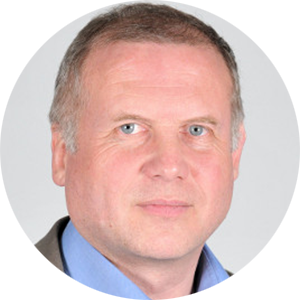 Diethard Mattanovich, PhD, Professor, Microbial Strain Design,
Biotechnology, University of Natural Resources and Life Sciences (BOKU)
Diethard Mattanovich, PhD, Professor, Microbial Strain Design,
Biotechnology, University of Natural Resources and Life Sciences (BOKU)
The yeast Pichia pastoris is well established for production of heterologous proteins for technical and biopharmaceutical use. The major benefit, i.e., high expression levels on methanol, driven by methanol inducible promoters, is
also the source of a major drawback: methanol utilization leads to high oxygen consumption and metabolic off-heat. Here, we present a strategy to produce proteins with novel methanol inedependent promoters which enables a simple and fast
process regime, exceeding methanol processes in titer and productivity. This strategy can save installation and operation costs, and make P. pastoris amenable for single-use bioreactors.
12:45 Luncheon Presentation (Sponsorship Opportunity Available) or Enjoy Lunch on Your Own
13:15 Session Break
13:45 Chairperson’s Remarks
Stefan Junne, PhD, Group Leader & Chair, Bioprocess Engineering, Technische Universität Berlin
13:50 Bioprocess Engineering of Insect Cells for Enhanced Gag-VLPs Production
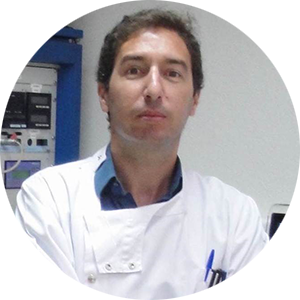 António Roldão, PhD, Senior Scientist, Health & Pharma Division,
Animal Cell Technology Unit, Cell-Based Vaccines Development Lab, iBET - Instituto de Biologia Experimental e Tecnológica
António Roldão, PhD, Senior Scientist, Health & Pharma Division,
Animal Cell Technology Unit, Cell-Based Vaccines Development Lab, iBET - Instituto de Biologia Experimental e Tecnológica
In this work, the production of Gag-VLPs was achieved and further optimized by (i) generating stable insect cell lines using site-specific gene integration based on flipase-mediated cassette exchange technology, and (ii) adaptive laboratory
evolution of insect cells to hypothermic culture conditions and supplementation with productivity enhancers. Overall, the insect cell platform and bioprocess engineering strategy herein assembled has the potential to assist and accelerate
vaccine development.
14:20 Bioprocessing of Cell Culture Derived Vaccines in Bioreactors
Leeann Naicker, PhD, Researcher, Research and Development, OBP Vaccines
Currently, we are evaluating various Bioreactors for the production of vaccines. These processes will be adopted into our GMP facility. Various parameters are being assessed, including pH, glucose consumption, online monitoring, dissolved
oxygen, cell production, virus production, scaling up, and effects of shear stress. Bioreactors such as the Tide cell, Bello cell, Icellis, Biostat stirrer tanks have been evaluated, and currently the Biostat Cultibag is being evaluated
for cell and vaccine production.
14:50 Characterization of Mammalian Cell Culture Off-Gas Composition by On-Line Magnetic Sector MS for Real-Time Bioprocess Monitoring
 Patrick Floris, PhD, Researcher, National Institute for Bioprocessing Research and Training (NIBRT)
Patrick Floris, PhD, Researcher, National Institute for Bioprocessing Research and Training (NIBRT)
The evaluation of a magnetic sector MS analyser, the Prima BT from Thermo Fisher Scientific, as an on-line technology for mammalian cell culture process monitoring is here presented. Through off-gas characterization, the MS analyser provided
real-time information on the cellular growth state in batch and fed-batch processes performed in benchtop bioreactors, facilitating accurate quantification of Oxygen Uptake Rate (OUR), Carbon Dioxide Evolution Rate (CER) and Respiratory
Quotient (RQ) values which revealed correlation with off-line metabolite and cell viability data.
15:20 Close of Conference